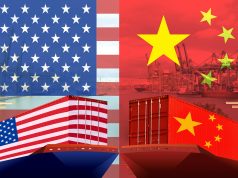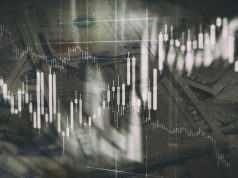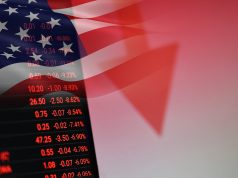The hiking value for the U.S dollar is reallocating growth all over the global financial system. The rise of the dollar to its peak value in the last 12 years on a trade-weighted basis is creating problems for the U.S in terms of dominating the global exchange market, as well as countries whose exchange rates follow the dollar, including China. The ramped up dollar is causing a decline in commodity prices, damaging producers, such as Brazil, and intimidating other emerging markets where companies borrowed in U.S. currency when it was cheaper.
When we see the opposite side, the euro area and Japan are exchanging in, as their companies are up surging in the world markets. India is also taking advantage of this situation by inhaling more energy imports with fewer costs.
“The dollar’s rise is sorting the world into winners and losers,” said Peter Hooper, chief economist at Deutsche Bank Securities Inc. in New York and a former Federal Reserve official.
Investors are already changing the securities of their portfolios. There is an inclination of 21 percent in the current year for Euro Stoxx 50 Index, as traders gamble on improvement of the region’s economy. Airplane maker Airbus Group NV and cosmetics manufacturer L’Oreal SA are among the line of companies who expects to climb up in the presence of the cheap currency environment.
Contrasting, Standard & Poor’s 500 Index is rising just 2.1 percent and the sales ratio of abroad companies in the index constitute more than 40 percent. The companies Monsanto Co., seed producer, and jewelry retailer Tiffany & Co. has already warned that hiked currency value will further create problems and will hold back their profits.
The dollar’s high value is possibly a good sign for global economic growth.
“In an ideal world, economies with disinflationary trends — particularly the large, advanced economies — will have exported just enough deflation to the U.S. to stabilize inflation expectations and probably growth, too,” said Manoj Pradhan, a global economist at Morgan Stanley in London. “This would allow the U.S. to start the process” of raising interest rates.
However, when we look in the past two extended currency surges occurring in the first half of the 1980s and the latter half of the 1990s also caused disturbances.
At the Peterson Institute for International Economics in Washington, senior fellow David Stockton now sees U.S. gross domestic product increasing 2.7 percent in 2015 and 2.4 percent in 2016. That’s down about a quarter percentage point from his October forecasts. Fourth-quarter GDP last year was 2.4 percent higher than a year earlier.
“There is going to be bigger damage” from the dollar, the former Fed official said, adding policy makers will be forced to raise rates more slowly than they currently envisage in response.
Due to the drag provided by the strong dollar value, central bankers lessened their median forecast for the federal funds rate to be 1.875 percent at the end of next year, down from 2.5 percent estimated in December. The current target for the rate ranges from zero to 0.25 percent.
The dollar’s surge provides benefits to ECB and Bank of Japan, which depend on the weaker exchange rates to propel in market through easier monetary policies and boost foreign demand and import prices. Declines in the value of the euro and yen also help boost business confidence.
“A re-run of the crisis conditions of 1998-99 is unlikely, but there are areas of significant vulnerability,” said Adam Slater, a senior economist at Oxford Economics Ltd. in Oxford, England. He predicts the dollar’s strength will help reduce growth this year in emerging markets to the slowest pace since 2009.
The dollar’s rise is playing a “redistribution role” when it comes to global growth, said Charles Collyns, chief economist at the Institute of International Finance in Washington and a former U.S. Treasury Department official.
“That creates a little bit of turbulence, a little bit of uncertainty, but generally it’s a good thing,” he said.










